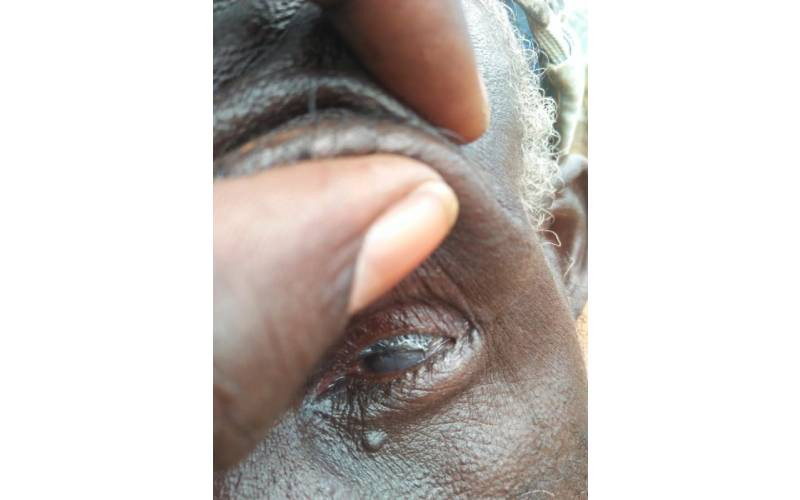
Trachoma remains a neglected tropical disease in Kenya, despite 10 million people being at risk of contracting it, more so in arid and semi-arid where livestock is the main economic activity.
Dr Rebeccah Oenga, an ophthalmologist at Kajiado County Referral Hospital and coordinating eye care services in Kajiado County explains that trachoma is an eye disease caused by bacteria, known as chlamydia trachomatis that causes inflammation or conjunctivitis in the eye.
The disease presents with redness, tearing and discharge. Recurrent infection causes scarring on the underside of the eye and the scaring causes the shortening of the lid, which leads to the interning of the eyelashes, causing trauma to the cornea of the eye, leading to loss of sight.
 The Standard Group Plc is a multi-media organization with investments in media
platforms spanning newspaper print
operations, television, radio broadcasting, digital and online services. The
Standard Group is recognized as a
leading multi-media house in Kenya with a key influence in matters of national
and international interest.
The Standard Group Plc is a multi-media organization with investments in media
platforms spanning newspaper print
operations, television, radio broadcasting, digital and online services. The
Standard Group is recognized as a
leading multi-media house in Kenya with a key influence in matters of national
and international interest.











